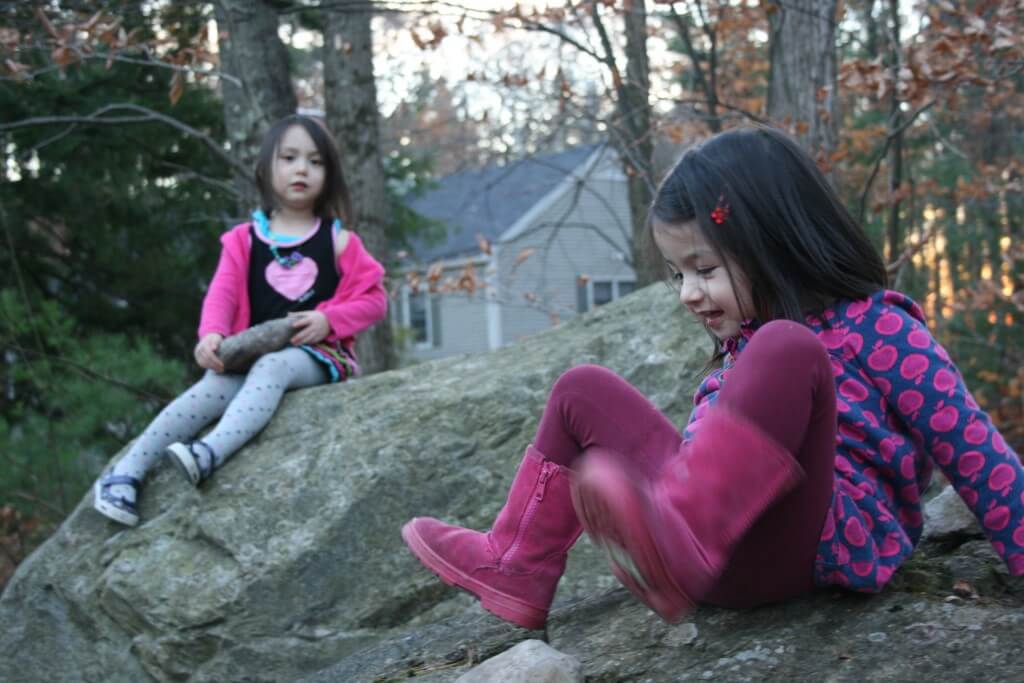
My husband and I have three little girls, and our parenting goal can be summed up as, simply: to get these kids out of our house. (Or, more delicately put, we’d like to raise daughters who, when it’s legally appropriate, are equipped to leave us). But there is a little something else, something that is important to me as a mother regarding the kind of kids we send out into the world.
It occurred to me back when I was pregnant with our first daughter: I want to raise children who are not afraid.
To clarify, I do want our children to survive their childhoods, so obviously there are things that it’s appropriate and desirable for them to fear, like traffic, strangers, and crystal meth. I’m talking about Fear in a broader sense:
I don’t want my kids to be afraid to do what’s right, to stand up for the truth even when their peers are telling them otherwise.
I don’t want my kids to be afraid to love boldly, even when other people are hard to love or when they’re risking the pain of loss.
I don’t want my kids to be afraid to see the world, to go to far-flung places that need help and offer their hands, even when it means facing discomfort and a broken heart.
I don’t want my kids to be afraid to fix a leaky faucet, change a flat tire, paint a room, sew a dress — heck, even build a whole house from the bottom up!
I don’t want my kids to be afraid to do what they love even if it’s difficult or not immediately rewarding. (NOTE: This does NOT necessarily mean that we will pay for advanced degrees in drama or art!)
And — perhaps more relevant to our current life — I don’t want my kids to be afraid to run onto the playground without a backwards glace, to scale the climbing wall and the ladders, to swing out across the monkey bars, to jump into piles of leaves, to stomp in mud puddles, or to strip off all their clothes and run out into a lake.
In brief, I don’t want my kids to be afraid to be themselves, the very unique people they’ve been created to be. I want them to let their little lights shine, without any room-darkening shade of fear.
I’m about to make a very sweeping statement: I think that fear can be found at the origin of almost all personal and global problems.
Now, this all may sound pretty unobjectionable. It also probably comes off as very pie-in-the-sky and “let’s all hold hands and sing ‘I Hope You Dance.'” But don’t be deceived. The more I think about it, and the more that I live out this parenting thing, the more I realize how very, very hard it is to raise children who aren’t afraid.
It’s hard, because in order to even approach this goal it means that I can’t be afraid.
The power and terror of parenting is that parents are the first lenses through which their children view the world. The things we say to them, the experiences we provide them, will all in some way shape the men and women they become. So if I’m afraid, if I’m transmitting fear signals to my children as we move through life together, doesn’t it follow that they will likely, in some way, internalize this fear?
I’ve been thinking about all of this a lot lately because of Joan Didion’s new book. Joan Didion has been one of my favorite writers for years; I own all of her books, and they’re the only ones I consistently reread. This Christmas, my husband gave me her newest book, Blue Nights, a memoir about her daughter, Quintana, who died several years ago. It’s a beautiful and painful read, and what grabbed me was this passage, in which Didion describes Quintana’s recurring childhood nightmares about somebody she called “The Broken Man”:
“[The Broken Man] has on a blue work shirt, like a repair man,” she repeatedly told me. “Short sleeves. He has his name always on his shirt. On the right-hand side. His name is David, Bill, Steve, one of those common names. I would guess this man is maybe age fifty to fifty-nine. Cap like a Dodger cap, navy blue, GULF on it. Brown belt, navy-blue pants, black really shiny shoes. And he talks to me in a really deep voice: Hello, Quintana. I’m going to lock you here in the garage. After I became five I never ever dreamed about him.”
… It was when she said “I would guess this man is maybe age fifty to fifty-nine” that I realized my fear of The Broken Man to be as unquestioning as her own.
-Joan Didion, Blue Nights
To me, this anecdote powerfully illustrates how our children’s fears feed off of our own, and vice versa. How to be a parent and not fear? In so many ways, to be a parent is to be afraid. I have never been prey to so many fears as I have been since our children were born. Afraid of something happening to them, afraid of something happening to me. Never has mortality been so real to me. Never have I cried so easily at things that wouldn’t have phased me before parenthood; there are books I can no longer read, movies I can no longer see, because of the fearful places they’d take me.
I can’t say that I have an easy solution to this problem of fear. Like everybody, I’m still in the process of becoming. But I think I may have found a little clue in the very place that most of our girls’ fears currently come from: fairy tales.
Like most young children, our girls love reading fairy tales — especially the ones that include princesses. All day long we read, reenact, listen to, and watch fairy tales. These fairy tales are also the single greatest source of the fears that keep them up at night: the witches, evil stepmothers, dragons, and wizards that, to quote our oldest, “I can’t get out of my head.”
But I’ve noticed something about these fairy tales — at least the princess ones — that I use to try and help the girls with their fear: in the end, Love always wins. And I don’t just mean love like, “The prince thought the princess was mighty fine and they lived happily ever after.” I mean Love with a capital “L,” the kind of love where you put the needs of others and the desire to do what’s right above your own comfort. The kind of Love where you have to be Brave. (The kind of Love that, in our family, we root down in our Christian faith. I’m not a religious scholar, but I’m willing to bet its roots grow in the soil of most other faiths, too). So when my girls feel scared about the evil in a fairy tale, I say, “You can handle that witch/stepmother/dragon/wizard, because you know that Love always wins in the end .”
You don’t have to tell me that life isn’t a fairy tale. The girls already know a family that lost its father in a tragic car accident this summer, and they have some other friends whose mother just up and left. As they grow older, they’re going to learn that some people do unspeakable things to children, that some people feel so broken that they don’t want to live anymore, that natural disasters can take away everything you have, that the Holocaust happened, that the Rwandan genocide happened, that worse things are probably happening right at this very moment.
And when they come to me and ask about these things, I think I’ll probably have the same answer as I do to their fairy tale fears: “Yes, there is great, great evil in the world, but you don’t have to be afraid because Love always wins in the end. And even when it looks like the evil is winning, like there’s no sense to all this darkness, that’s just because it’s not the end yet.”
I’m going to keep telling myself that, too, every time we go to the playground and they start scaling that steep climbing wall alone. Or the next time this happens:
Wishing you all a very Happy Valentine’s Day, filled with Love with a capital “L.”

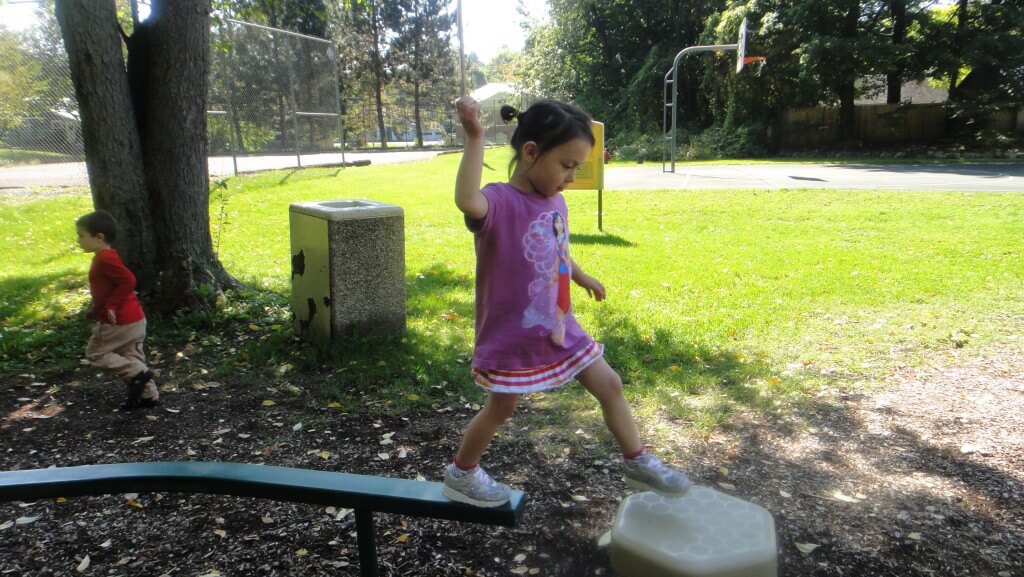
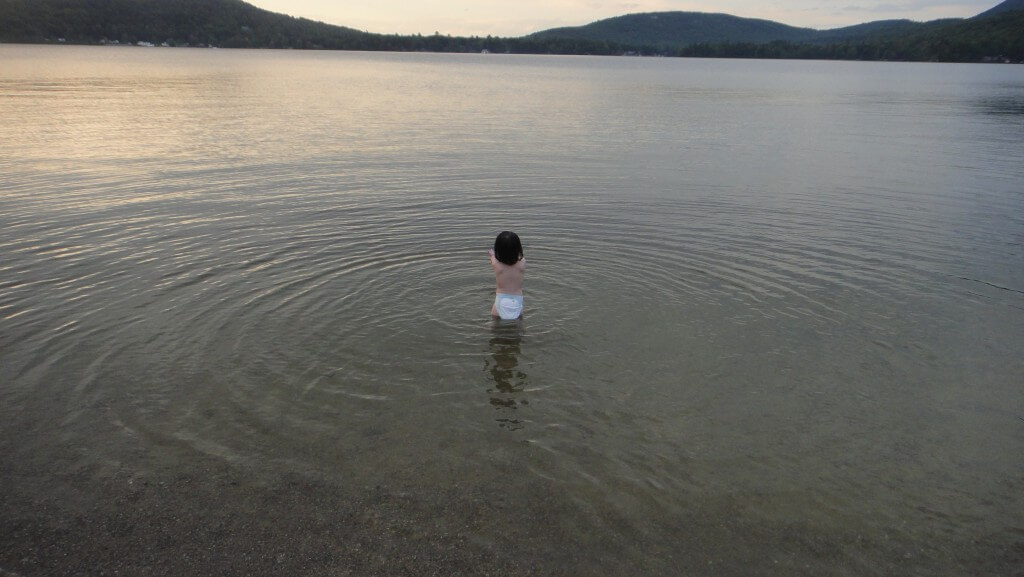
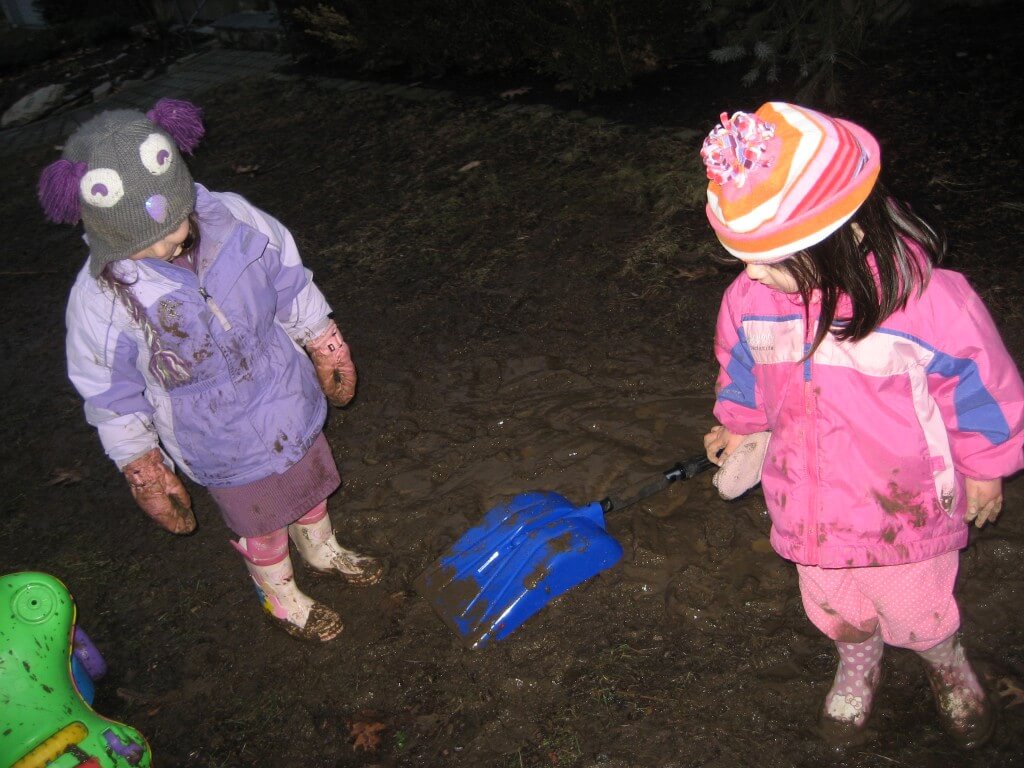
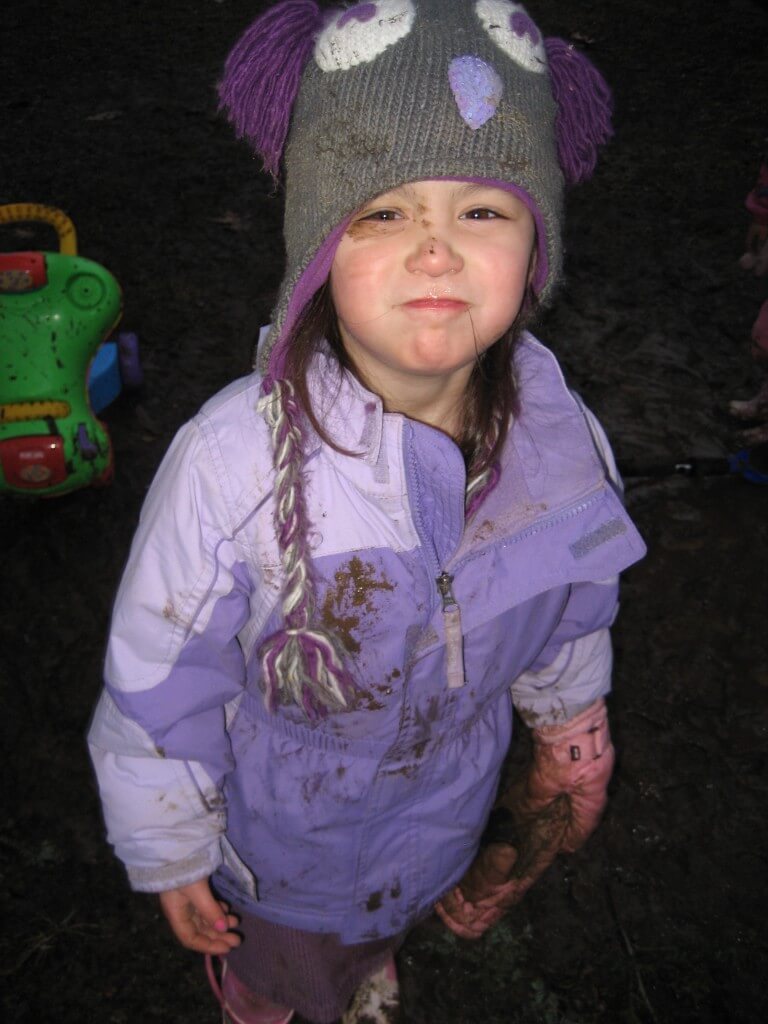
I Love Love Love this post! “You can handle that witch/stepmother/dragon/wizard, because you know that Love always wins in the end.” -what a good lesson for your sweet little girls… and all of us! 🙂
Pingback: On Fear and Love « The Pickle Patch
Loved this post! Please keep writing! I’d love to hear more parenting conclusions. Good stuff.
I like the new Blog ( or blog format) Faith. I read it just about every week and I don’t even have kids of my own! Now that’s saying something.
Beautifully shared. I think you are so right. I recently learned that God’s most frequent command in scripture is “do not dear” and I just can’t get over the profound meaning that must have that I can’t even fully grasp yet.
Thank you, everyone, for your kind comments! Zoe, I didn’t know that Biblical statistic, but how cool! Thanks for sharing that!
so well written, as usual. Thanks faith!